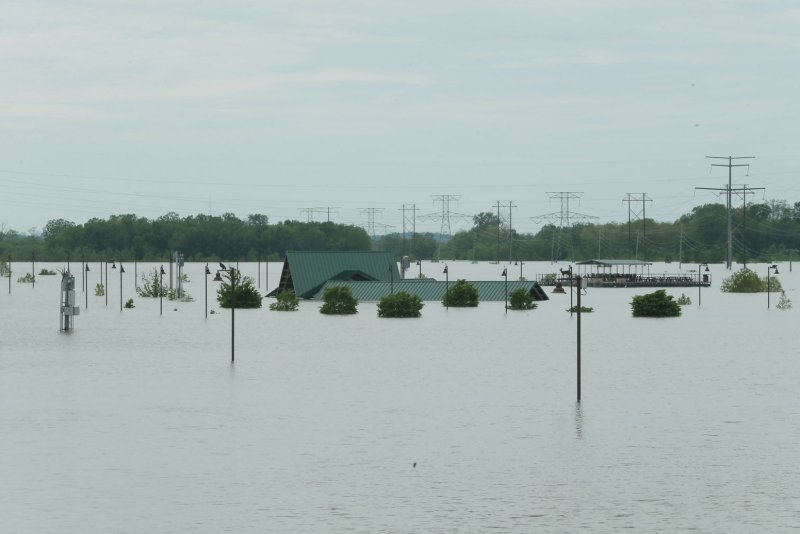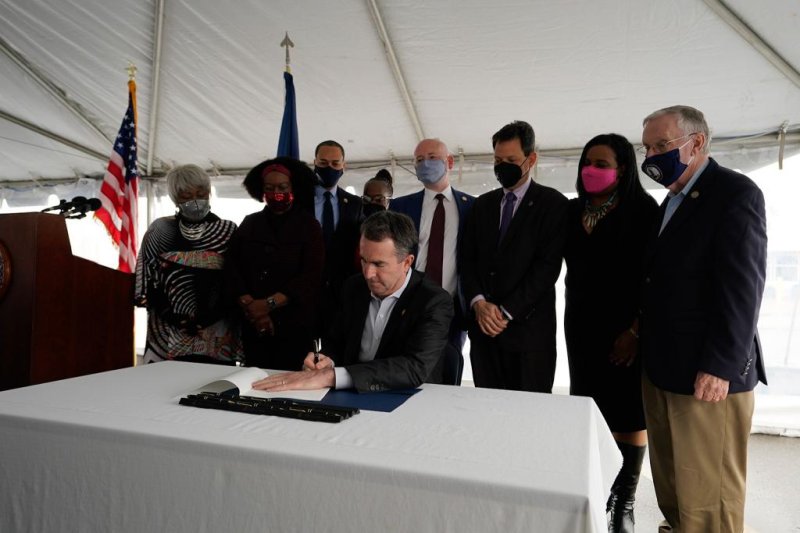
As the climate warms, models predict an increase in the risk of people being displaced by river flooding. File Photo by Bill Greenblatt/UPI | License Photo
March 24 (UPI) -- As the planet warms, seas rise and climate change triggers shifts in precipitation patterns, scientists expect millions of people to be displaced by flooding and other forms of extreme weather.
In an effort to more precisely quantify displacement risk, an international team of researchers combined a variety of climate and hydrological models.
Their analysis, published Wednesday in the journal Environmental Research Letters, showed a single degree of warming will increase the risk of displacement caused by river flooding by 50 percent.
"Displacement poses many hardships, which often fall most heavily on socio-economically vulnerable groups, who tend to live in more hazard-prone areas," researchers wrote in their newly published paper.
RELATED Fast-growing India, Brazil key to curbing climate change post-COVID-19
Since 2008, 288 million people have been displaced by natural disasters, more than 140 million people by river flooding.
Over the last 15 years, three times as many people have been displaced by natural disasters than by violence and political conflict.
"Displaced people face heightened risks to their physical and mental health, livelihoods, land tenancy, personal security and many other aspects of their well-being," researchers said.
RELATED China braces for impact after mass flooding at Three Gorges Dam
At macro scales, natural disaster-related displacement can severely slow economic development, leaving already vulnerable populations socially and economically left behind.
Previous studies have shown climate-fueled increases in flood risk could have severe consequences on global food production and trade patterns.
By quantifying climate change's influence on displacement risk, the authors of the new study hope to help policy makers take steps to protect vulnerable populations by mitigating flood risk and strengthening emergency preparedness.
When scientists used the models to estimate displacement risks under different climate scenarios, they found that if Paris Agreement targets for global warming are met, the globally averaged risk of populations being displaced by river floods will double by the end of the century.
If greenhouse gas emissions and climate change continue unabated, however, the risk will balloon by 350 percent, the researchers found.
The latest study echoes the findings of earlier investigations, showing urban development and population both increase flooding risks.
The researchers argue that their findings highlight the importance of curbing greenhouse gas emissions and slowing global warming.






